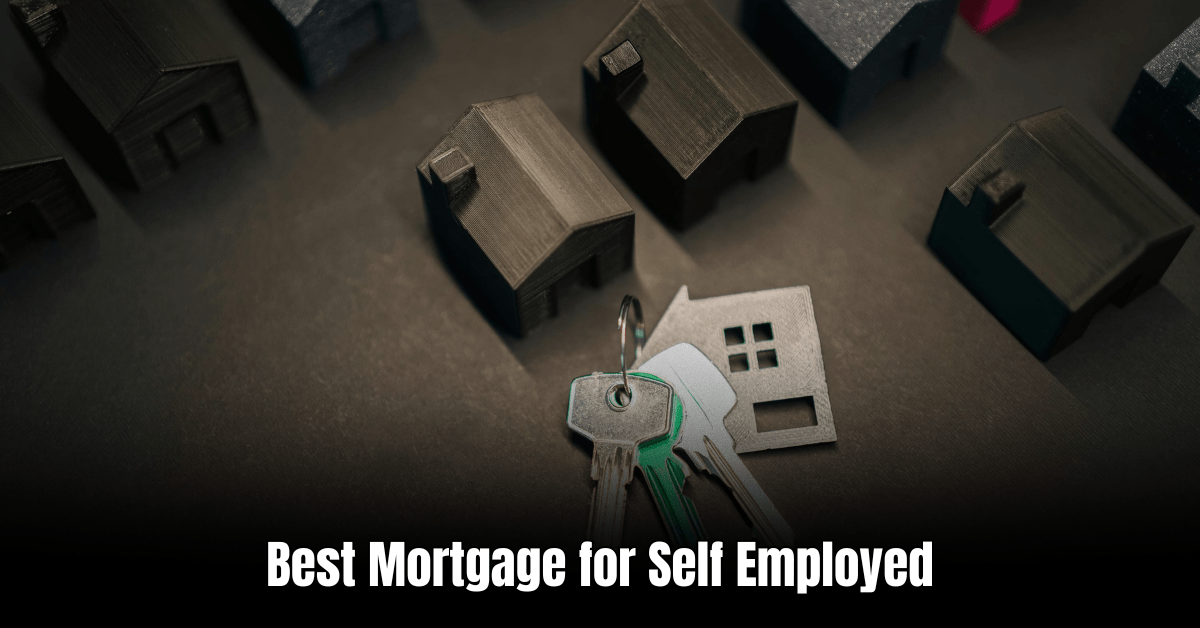Being self-employed comes with its own unique challenges, especially when it comes to securing a mortgage. Traditional lenders often require a steady income and proof of employment, which can make it difficult for self-employed individuals to get approved for a mortgage.
However, there are mortgage options available specifically tailored to meet the needs of self-employed individuals. These mortgages take into account the variable income and financial situation that often comes with being your own boss. In this article, we will explore the best mortgage options for self-employed individuals.
1. Bank Statement Mortgages
Bank statement mortgages are a popular choice for self-employed individuals who may have irregular income or have difficulty providing traditional income documentation. Instead of relying solely on tax returns or pay stubs, bank statement mortgages consider your bank statements to assess your income and ability to repay the loan.
The lender typically reviews 12 to 24 months of bank statements to calculate your average monthly deposits. This can be beneficial for those who have fluctuating income or a large number of business expenses that may not be reflected in traditional income documents.
2. Stated Income Loans
Stated income loans, also known as self-employed loans or no-income verification loans, are mortgages that allow self-employed individuals to state their income without providing extensive documentation. These types of loans are designed to streamline the application process and make it easier for self-employed borrowers to qualify.
Keep in mind that stated income loans may require a larger down payment and a higher interest rate compared to traditional mortgages. However, they can be a viable option if you have difficulty providing traditional income verification methods.
3. Non-Qualified Mortgages (Non-QM)
Non-Qualified Mortgages (Non-QM) are mortgages that don’t meet the standard requirements set by the Consumer Financial Protection Bureau. These mortgages cater to borrowers with non-traditional income sources or unique financial situations, making them a good fit for self-employed individuals.
Non-QM lenders consider factors such as bank statements, asset depletion, and credit history to assess a borrower’s ability to repay the loan. While the interest rates on Non-QM loans may be higher than traditional mortgages, they offer greater flexibility when it comes to income verification.
4. Portfolio Loans
Portfolio loans are mortgages offered by lenders who keep the loans in their own investment portfolios instead of selling them to third-party investors. This allows the lender to have more flexibility in terms of underwriting criteria, making it an attractive option for self-employed individuals.
With a portfolio loan, the lender can consider the overall financial profile of the borrower, including income, assets, and credit history. This enables them to offer more customized mortgage solutions for self-employed individuals who may not qualify for traditional mortgages.
Final Thoughts
As a self-employed individual, finding the best mortgage option can be challenging, but it’s not impossible. Bank statement mortgages, stated income loans, non-Qualified mortgages, and portfolio loans are all excellent options to consider.
Before making a decision, it’s crucial to do your research, compare lenders, and consider your financial goals. Consulting with a mortgage professional who specializes in working with self-employed individuals can also provide valuable guidance throughout the process.
Remember, being self-employed should not hinder your dreams of homeownership. With the right mortgage option, you can turn your dream of owning a home into a reality.
Frequently Asked Questions On Best Mortgage For Self-Employed: Obtain The Ideal Financing Solution
What Are The Requirements For A Mortgage For Self-employed Individuals?
To qualify for a mortgage if you’re self-employed, lenders typically require a solid credit history, consistent income, and documentation such as tax returns and financial statements.
How Can Self-Employed Individuals Improve Their Chances Of Getting A Mortgage?
Self-employed individuals can enhance their mortgage eligibility by maintaining accurate financial records, keeping a low debt-to-income ratio, and demonstrating a steady income over time.
Are There Specific Mortgage Options Tailored For Self-employed Individuals?
Yes, there are specialized mortgage programs designed specifically for self-employed individuals, including bank statement loans and stated income loans. These options consider your income and assets in a different way than traditional mortgages.
Can Self-Employed Individuals Qualify For Competitive Mortgage Interest Rates?
Absolutely! Self-employed individuals with a strong credit history and stable income can qualify for competitive mortgage interest rates similar to those offered to traditional, salaried employees.
Ismail Hossain is the founder of Law Advised. He is an Divorce, Separation, marriage lawyer. Follow him.





Leave a Reply